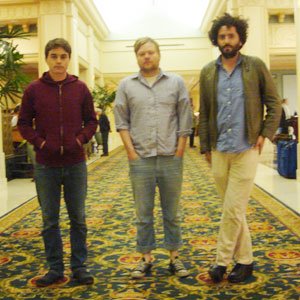
LISTEN: Swan Lake "All Fires"
“But this Theresa, they love, the best…”
Mother Theresa was and is a fascinating public figure. She represents “kindness” and “purity” to so many people around the world, across cultures. Mainly as a result of her well-documented charity and social work in impoverished nations. Whether or not Swan Lake is making a reference to this particular Theresa in “All Fires” is beside the point, what we can’t deny is that in contemporary society the name “Theresa” holds with it the weight of a certain “saintly” woman in blue and white.
“From near his heart, he took a rib…”
The rock star is more closely aligned with “Theresa” than one might think. Since the days of romantic poets it’s been fashionable to be a “tragic” artist. And what that has come to mean is sacrifice; suffer for your art. But it isn’t just self-imposed suffering, because society and the public demand it from the great artist, as well as with all great people. The one’s we respect, “love” the best are the ones that give the most of themselves for others, for us.
What this track approximates is our desire and need for martyrdom, that romantic urge for the epic act of sacrifice. But what we can’t ignore is our own impulse for self-preservation, one that emerges blaringly at moments of intense danger.
“500 pieces means 500 float, 1000 people means 500 don’t…”
Krug narrates the story of a village tragically struck by a flood that scrambles to save life as half the community drowns. The solution becomes a nearby church, which they use for flotation wood. Amidst this chaos the mason’s wife swims to save her daughter, disregarding her own safety. At this point the backing vocals increase, and the track intensifies with the line "500 pieces..." What the singer anticipates in the first verse is that above all else we will sacrifice for love. But paradoxically we are driven by self-preservation, and in moments of complete despair we would choose our own lives, at least 50 percent of the time, over either martyrdom or salvation. And it is precisely love, our love of the both the romantic notion and our love of ourselves, that rules both decisions in this case. The romantic and religious ideals are not sacred enough to resist our urge for survival, and yet we insist that life is suffering. It is our love of the idea of “Theresa,” our obsession with the story of Jesus and all the great “sacrifices” in history, that keeps us dreaming of these people. But at what cost?
“All fires have to burn alive, to live…”
To truly inspire people, and to keep them preserving their lives and each other it seems that one must sacrifice something. In the end the singer decides that he also loves “Theresa” the best, and perhaps is deciding to go the way of the tragic figures before him. But there is also the open possibility of rejecting the ideal, or perhaps using it in a different way. The villagers tear up a church to preserve their lives, because in the end, that is more important. There is no denying that impulse. And yet you somehow want to condemn them for losing the life of 500.
But it remains a sad fact that to burn brightly, one must burn first. It would be ideal if we could escape this cycle of self-pain and self-punishment, but how do we break the cycle when we all celebrate it openly? Is sacrifice the noblest of actions for human beings? It shouldn’t be. Great art, like this song, should exist without the necessity of self-sacrifice. That isn’t to say that tragedy doesn’t produce the highest heights of beauty, but to intentionally choose pain in order to achieve beauty is troublesome – and also a very prevalent idea in our society.
This is a poweful song, no matter what stance Krug and company are taking. What they pinpoint is this impulse for pain in all of us, but even more prominently how it affects music, the artist, and us - the audience. Our love of Cobain only inspires more Cobain's, but how can we not love Cobain?

No comments:
Post a Comment